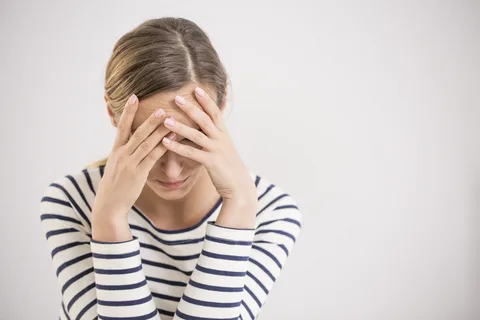Anxiety: The Silent Screams Within

Anxiety is a common yet often misunderstood mental health condition that affects millions of people worldwide. Despite its prevalence, anxiety is often referred to as the “silent screams within” because its effects are not always visible on the surface. In this article, we will delve into the various aspects of anxiety, exploring its causes, symptoms, impact on daily life, and effective coping strategies.
Understanding Anxiety
Anxiety is more than just feeling stressed or worried; it is a persistent and overwhelming sense of fear and apprehension. While it is normal to experience occasional anxiety in response to stressful situations, chronic anxiety can interfere with daily life and overall well-being.
Types of Anxiety Disorders
Anxiety disorders encompass a range of conditions, each with its own unique symptoms and triggers. Some common types of anxiety disorders include:
- Generalized Anxiety Disorder (GAD): Characterized by excessive worry and tension about everyday events and situations.
- Panic Disorder: Marked by sudden and recurrent panic attacks, accompanied by intense physical symptoms such as heart palpitations and shortness of breath.
- Social Anxiety Disorder: Involves an intense fear of social situations and interactions, often leading to avoidance behavior.
- Obsessive-Compulsive Disorder (OCD): Involves intrusive thoughts (obsessions) and repetitive behaviors (compulsions) aimed at reducing anxiety.
- Post-Traumatic Stress Disorder (PTSD): Occurs in individuals who have experienced or witnessed a traumatic event, leading to persistent anxiety, flashbacks, and nightmares.
Causes of Anxiety
The exact cause of anxiety disorders is not fully understood, but a combination of genetic, environmental, and neurological factors is believed to contribute to their development. Some common triggers and risk factors for anxiety include:
- Genetics: Individuals with a family history of anxiety disorders are more likely to develop them themselves.
- Brain Chemistry: Imbalances in neurotransmitters such as serotonin and dopamine can contribute to anxiety.
- Trauma: Past traumatic experiences, such as abuse or loss, can increase the risk of developing anxiety disorders.
- Stressful Life Events: Major life changes, such as moving to a new city or starting a new job, can trigger or exacerbate anxiety symptoms.
- Personality Factors: Certain personality traits, such as perfectionism or a tendency to overthink, may predispose individuals to anxiety disorders.
Symptoms of Anxiety
The symptoms of anxiety can vary widely from person to person and may manifest both physically and emotionally. Some common symptoms of anxiety include:
- Excessive worrying
- Restlessness or irritability
- Muscle tension and headaches
- Fatigue or trouble sleeping
- Difficulty concentrating
- Racing thoughts
- Sweating or trembling
- Nausea or digestive issues
Impact of Anxiety on Daily Life
Living with anxiety can be incredibly challenging and can have a profound impact on various aspects of daily life. Some ways in which anxiety can affect individuals include:
- Interpersonal Relationships: Anxiety can strain relationships with family, friends, and romantic partners, as individuals may withdraw or avoid social interactions due to fear and discomfort.
- Work and School Performance: Anxiety can impair concentration, memory, and decision-making abilities, leading to decreased productivity and performance in academic or professional settings.
- Physical Health: Chronic anxiety can take a toll on physical health, increasing the risk of conditions such as heart disease, gastrointestinal disorders, and immune system dysfunction.
- Mental Health: Untreated anxiety can contribute to the development of other mental health conditions, such as depression and substance abuse disorders, further complicating the overall picture of well-being.
Coping Strategies for Anxiety
While anxiety can feel overwhelming, there are many effective strategies for managing and coping with symptoms. Some techniques that may help individuals with anxiety include:
- Deep Breathing Exercises: Practicing deep breathing exercises can help calm the body’s stress response and promote relaxation.
- Mindfulness and Meditation: Mindfulness techniques and meditation can help individuals cultivate present-moment awareness and reduce rumination and worry.
- Regular Exercise: Physical activity has been shown to reduce anxiety symptoms by releasing endorphins and promoting a sense of well-being.
- Healthy Lifestyle Habits: Eating a balanced diet, getting adequate sleep, and avoiding excessive caffeine and alcohol can support overall mental health and reduce anxiety.
- Therapy and Counseling: Cognitive-behavioral therapy (CBT), exposure therapy, and other forms of psychotherapy can help individuals learn to challenge negative thought patterns and develop coping skills for managing anxiety.
- Medication: In some cases, medication may be prescribed to alleviate severe anxiety symptoms, particularly when other interventions have not been effective.
Conclusion
Anxiety is a complex and multifaceted mental health condition that affects millions of people worldwide. While it can be debilitating at times, it is important to remember that anxiety is treatable, and help is available. By understanding the causes, symptoms, and impact of anxiety, individuals can take proactive steps to manage their symptoms and improve their overall quality of life. With the right support and coping strategies, it is possible to overcome the silent screams within and live a fulfilling and meaningful life.



